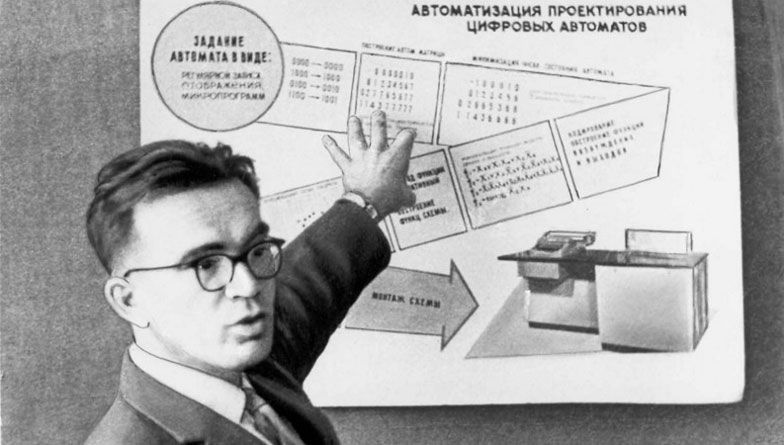Read this brilliant article by Aaron Benanav on market vs planning, have some comments.
- It's an extremely elegant piece of writing, navigating erudition and pedagogy, and forensically avoiding classic theoretic, political economy and ideological beartraps. Wish so much of discourse was like this.
- The division of the economy into 'algorithms' (price-finding) and 'protocols' (economic goals and guides) is elegant, and the idea that computers can in fact help both is wise
- I think the thesis is broadly correct - we can 'plan' the economy more, beyond just letting price mechanism run things 'invisibly'.
But…
- Surprised there's no mention of parecon, which is an updated attempt to do much of what he says (ie participatory planning)
- Likewise Arrow's Theorem (which blocks viability of much group priority setting), control theory (he touches on cybernetics but then moves on), systems theory/complexity all of which govern the economic decision scenario.
- Above all, the fact that Georgescu-Roegen's monetary input-output and stock-flow economic modelling is missing is a big deal. Because this was and is a non-socialistic attempt to put science behind the revelations of the price mechanism.
- On which point, it's not clear by the end of the piece if he thinks computers can or can't compute prices. The commentary on computation does distinguish the supply-chain computation of Amazon from actual price-mechanism, but it's a bit vague.
- A large-scale question is, does this model, of algorithms and protocols end up looking like anything other than a modern … mixed economy in a democratic setting. If it doesn't matter whether the price-setting is technocratically planned or organically revealed (Aaaron seems agnostic in the end), and the emphasis is on the protocols, what are protocols other than … laws. Which is how modern economies are indeed framed. Carbon tax is an explicit protocol to make sure the economy takes carbon into account as a social goal.
- Whether or not protocols are just laws by another name, it leads to a more specific problem of human co-ordination. The problem I believe with parecon, and this unnamed model of economy, even with massive support from networked computers, is that spending such a predictably vast amount of co-ordinating resource use is … in no way viable, even if, and this is a separate point, people were even willing or competent to do it.
At the root of this planned approach, however, is a set of technical problems around resource allocation that just won't go away.
- What happens, as is inevitable, if one region has better soil/land and produces more of a certain crop or mineral? Should they be denied privileged use of it?
- What happens if a worker or a region of workers have a particularly intellectual or creative aptitude, or work ethic, or other advantage that leads to increased production? Is this surplus something that should be denied them?
- Even more surprising is what happens if a certain region or individual needs /less/ than their fellow society members. How is the surplus they don't use reallocated?
- What about a situation where a region is disadvantaged in a certain way, for example in a very cold and hostile environment, such that workers cannot work as much as those in other areas, or require support that leads to other kinds of advantage?
These problems are not the fundamental questions of human need or justice, which might be agreed abstractly by the basic functioning of the economic protocols. They are instead issues of contextual imbalance that make allocation more complicated, and even if they can be resolved, lead to endless allocation corrections and debates.
And none of this yet covers what happens if the situation for resource allocation changes after a plan has been set: either because preferences change, or the output has been shown to be ineffective to need, or because of some external factor, such a as natural disaster. The last thing you imagine people want to be doing after a hurricane is working a redraft of the production plan.
This is not at all to say that the market economy doesn't have it's own severe problems, with maybe worse effects. But they do help explain why the market approach, with its automaticity, has an advantage.
And likewise, this isn't to say that the goal, of a more just and sustainable economy, even the means, of more participatory structuring and more algorithmic support the economy, aren't good. The question is how to do it.
On the basis that this proposal, even if it isn't a mixed market democratic economy, could flow from such a status quo, we might usefully spend time checking at least two things: the capacity of computers to actually compute price, or co-ordinate protocols; and the capacity of humans to co-govern, with or without computer support.
These are the things that seem underinvestigated in general: economics is cagey about actually completing the project of input-output modelling, even though computers are now available to help; and social theorists and political economists are slow to propose massive upgrades to public engagement and participation that would be required to activate AB's model.
Two things that might help are nested goal setting and generous performance margins.
If the sustainability performance goal can be set at a high level for the economy, and then each production sector within it has a nested contribution to it, that requires much less co-ordination than each sector doing it's own plan.
And if each sector, or region, has a wide performance margin, so the economy will function whether they come in over or under their allocation, that adds a lot of flexibility to the system, and again a reduction in the requirement for permanent micro-planning.
Either way, economic reform is urgent for environmental and social goals, and systemic proposals are very welcome! Thanks, Aaron for the update!
Image is of Victor Glushkov, presenting his work on cybernetic computing to manage and plan the Soviet economy.
